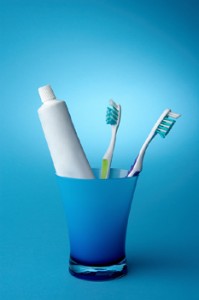
Dr. Corbitt and team know sleep disorders are fairly common, with around 50 to 70 million Americans being affected by some type chronic sleep disorder. Some of these progress to Obstructive Sleep Apnea (OSA), which can cause loss of sleep among many other health problems. Snoring is one of the most easily identified symptoms, and as it worsens it can lead to full airway blockage while you sleep, which can severely disrupt your sleep patterns. Sleep apnea is considered a serious medical problem that if left untreated can lead to high blood pressure, increasing the risk of heart failure and stroke. It can also take a toll on your overall energy level, as sleep apnea causes an ongoing state of fatigue.
In fact, in a recent study, researchers discovered that sleeping less than 9 hours, going to bed late and no bedtime routine can – and do – affect children’s academic skills. If you suspect that you may suffer from a sleep disorder or sleep apnea, please give us a call at 682.200.3198. Dr. Corbitt has completed UCLA’s Sleep Medicine mini residency, which has given her the ability to screen patients for sleep apnea and refer to a sleep clinic for a sleep study, if necessary. Untreated sleep apnea can lead to so many health issues, early diagnosis and treatment is very important.
Contact our practice, and we can schedule a sleep apnea screening appointment. We may recommend an overnight sleep study to diagnose the precise extent of the problem, which is needed to prescribe the appropriate treatment. Depending on your medical insurance, Dr. Corbitt may refer you directly to the sleep clinic or contact your primary care for the referral.



 Everybody is jumping on the electric toothbrush bandwagon in recent years, with many experts in the dental field claiming electric toothbrushes provide superior dental care. It’s true that electric toothbrushes are recommended for those who can’t do a good job brushing manually or who have arthritis or other conditions. But manual toothbrushes do have some advantages, according to an
Everybody is jumping on the electric toothbrush bandwagon in recent years, with many experts in the dental field claiming electric toothbrushes provide superior dental care. It’s true that electric toothbrushes are recommended for those who can’t do a good job brushing manually or who have arthritis or other conditions. But manual toothbrushes do have some advantages, according to an  Happy Monday! Dr. Renee Corbitt and our staff would like to give those patients with flex spend, health savings, or insurance benefits a friendly end of the year reminder that it’s high time to schedule your dental visits so you optimize your benefit.
Happy Monday! Dr. Renee Corbitt and our staff would like to give those patients with flex spend, health savings, or insurance benefits a friendly end of the year reminder that it’s high time to schedule your dental visits so you optimize your benefit.

 Thank you for the question, and yes, absolutely. Germs are known to linger on the bristles, and you risk prolonging your sickness by continuing to use the same toothbrush. Be smart this summer – keep a spare, just in case! To protect your toothbrush from bacteria all year long, consider the following tips:
Thank you for the question, and yes, absolutely. Germs are known to linger on the bristles, and you risk prolonging your sickness by continuing to use the same toothbrush. Be smart this summer – keep a spare, just in case! To protect your toothbrush from bacteria all year long, consider the following tips:
